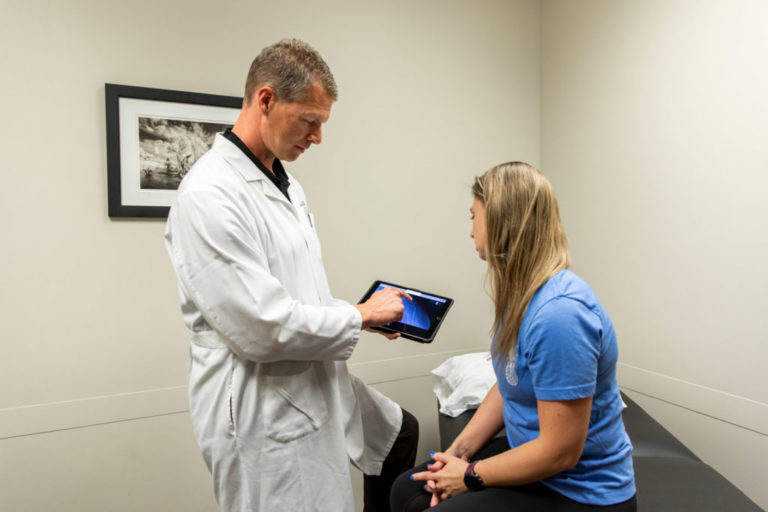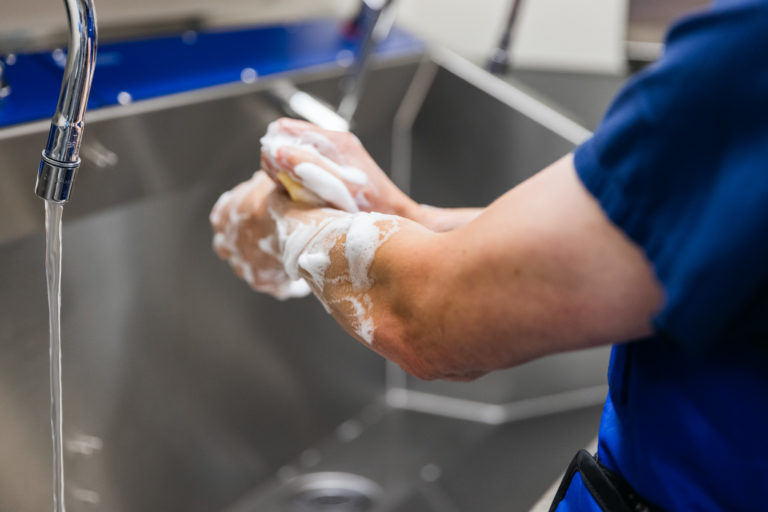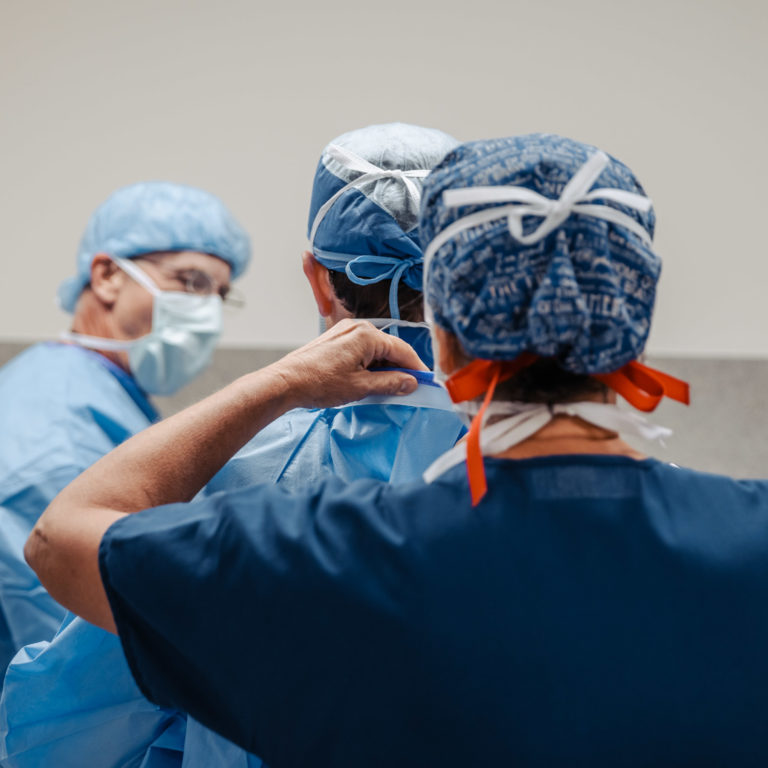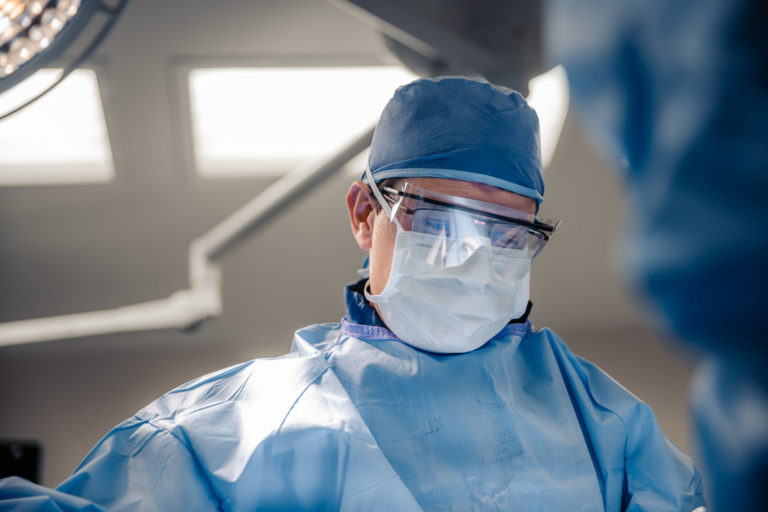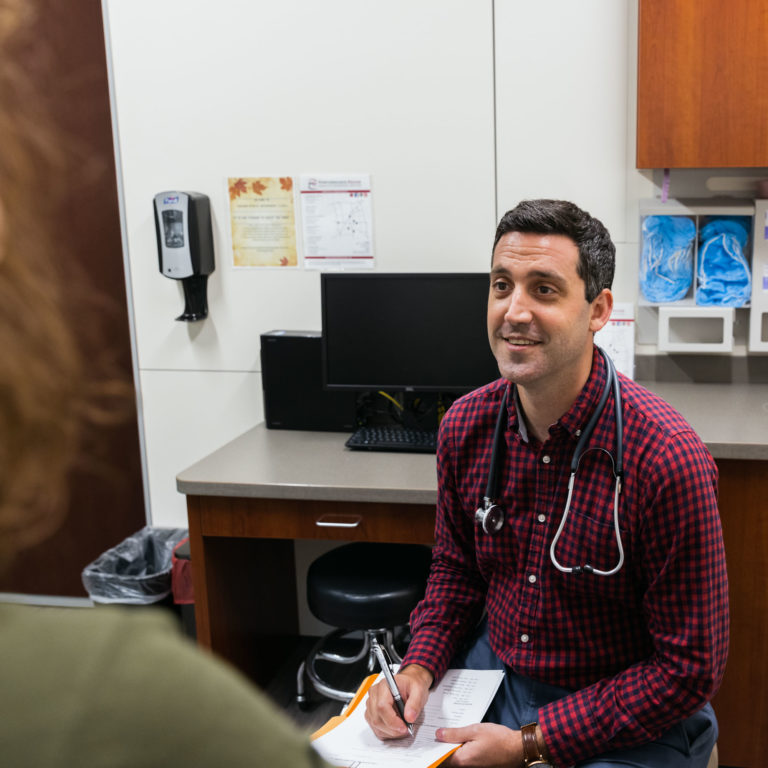Spinal Fusion in Kansas City
Spinal Fusions
Optimize Your Spine Health. Live Pain Free.
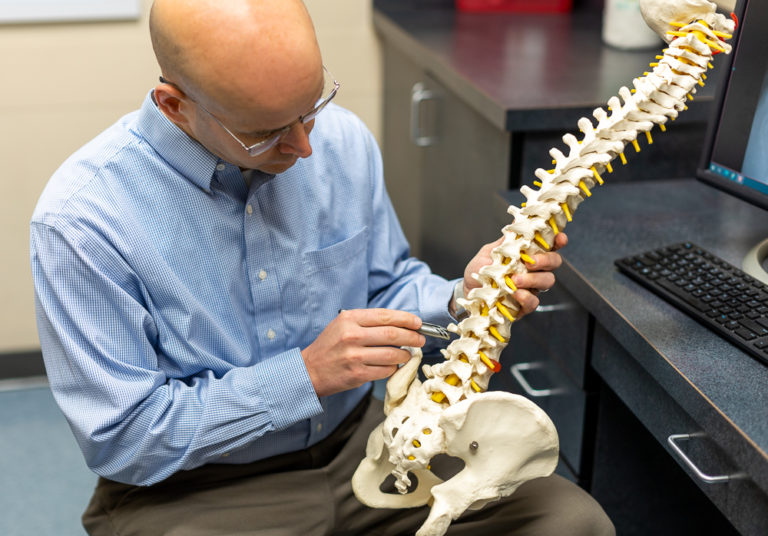
Understanding the Basics Behind Spinal Fusion
What are Spinal Fusions?
People with significant back pain may turn to surgical procedures after exhausting all other measures to seek relief.
Lumbar spinal fusion, a surgical treatment for spinal instability or scoliosis, is a viable solution for certain patients. Spinal fusion, when performed by the highly trained specialists at Kansas City Orthopedic Alliance, allows patients an opportunity to return to the lifestyle they expect and love.
At Kansas City Orthopedic Alliance, our goal is to ensure you are well informed and able to make the right decision for your needs. Our dedication to bring value to our patients means only recommending surgical procedures if conservative options fail to resolve your spine condition.
Before assuming you have any kind of spinal instability, be sure to schedule an appointment with a Kansas City Orthopedic Alliance physician.
We can provide professional insight and a proper diagnosis to understand your treatment options.
Ask questions such as:
- Is your rib cage sticking out more on one side than the other?
- Is one hip higher than the other?
- Is there an uneven appearance in the shoulders and/or waist?
- Is one shoulder blade more prominent than the other?
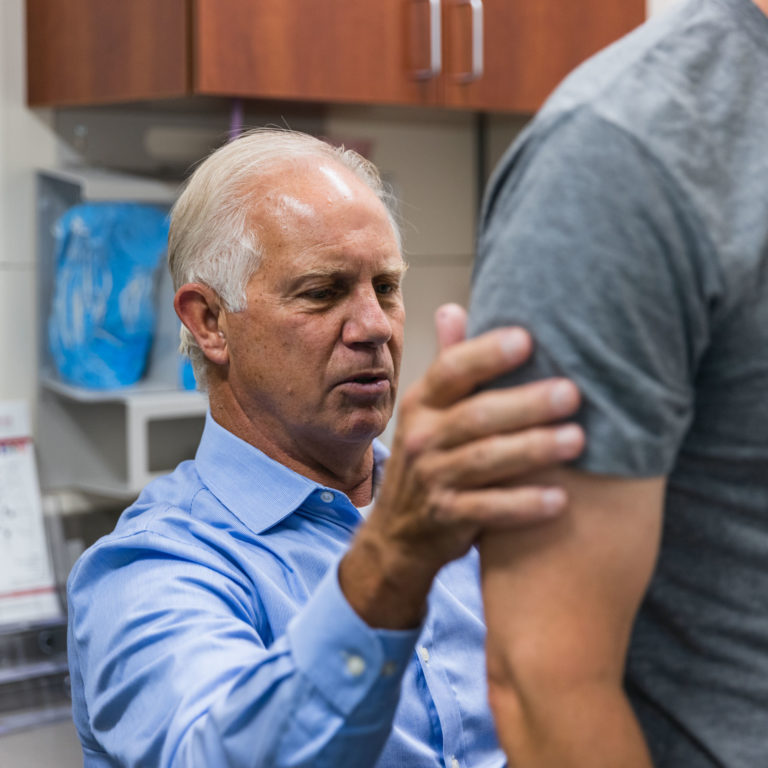
Spinal instability symptoms include:
- Back pain
- Leg pain
- Stiffness
- Decreased mobility
- Muscle spasms
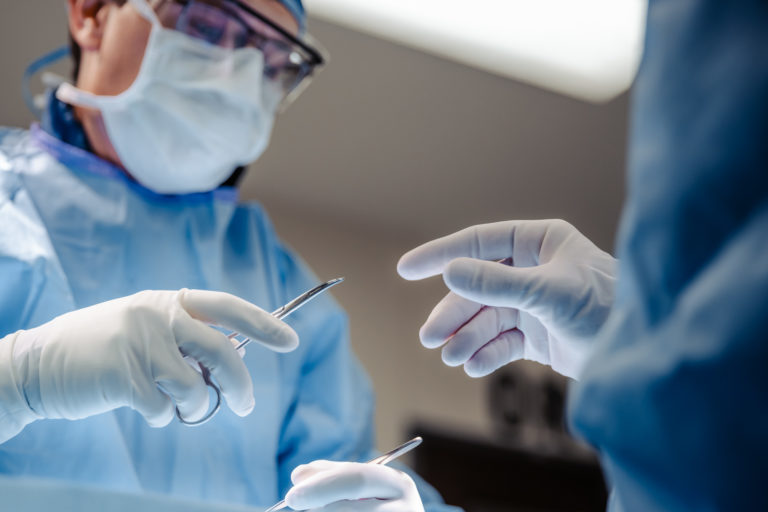
Your First Appointment
Initially, you may notice some pain from scoliosis or spinal instability, but some patients don’t seek treatment until it worsens over time. Whenever pain becomes severe, limits your mobility, or causes you to have trouble sleeping, it’s best to visit a Kansas City Orthopedic Alliance physician.
During your initial visit, we will ask you to fill out paperwork detailing your condition. You should also bring any X-rays or diagnostic tests you’ve had performed prior to coming to Kansas City Orthopedic Alliance for treatment. Last, we’ll require proof of insurance or form of payment for the provision of the services rendered.
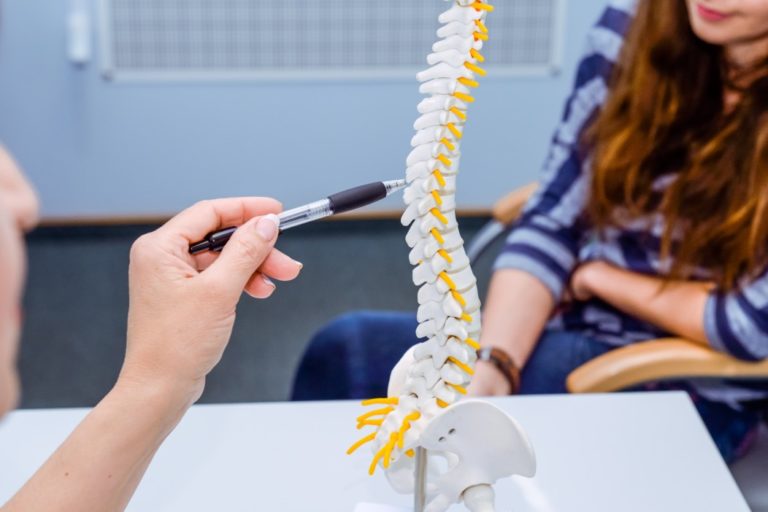
Kansas City Orthopedic Alliance Assessment
Assessing the Condition
During your appointment, you will sit with your Kansas City Orthopedic Alliance physician of choice to discuss your fracture, pain levels, exacerbating factors that increase or decrease pain, previous treatments, and more.
From there, your provider will perform a physical exam and other necessary diagnostic studies. With your history, examination, and test results, your spine surgeon can build a treatment plan and determine whether spinal infusion in Kansas City is your best solution.
Therefore, during your initial appointment, we will often ask questions such as:
- Does your pain currently limit you or your activities?
- Has your pain progressed or worsened recently?
- Have you noticed any change in your symptoms that has made it more challenging to function?
- What are your lifestyle goals?
- How has pain affected those goals?
From there, we can decide whether more conservative treatments will suffice or whether you would find the most benefit with surgery.
The Exam
Examination
Your physician will utilize diagnostic tests to determine the severity of your spinal instability and/or curvature. Commonly, you may have to undergo X-ray exams to diagnose the condition. However, you may also undergo other testing options, such as magnetic resonance imaging (MRI) or CT scans.
Establishing Care
Establishing a Care Plan
Based on the results of your interview, examination, and imaging studies, you can expect a custom care plan catered specifically to you. From there, we outline what you can expect with your spinal fusion and how to prepare for your procedure.
The decision to perform lumbar spinal fusion surgery rests on several factors. Most importantly, you must have the appropriate indication for spinal surgery—that being spinal instability or a large spinal curve or scoliosis. Prior to even considering that spinal surgery, you need to have exhausted all non-operative treatments.
Symptoms
Common Signs & Symptoms
The physical symptoms of scoliosis or spinal instability often appear gradually and can initially go unnoticed. As curves in the spine become more prominent, you might require some form of treatment. To check for signs and symptoms, it’s important to assess your physical appearance and monitor any changes.
Causes
Causes for Spinal Infusions
Instability could come from a spinal injury or a degenerative condition that affects the vertebrae over time. In general, excessive motion could lead to pain and misshapen the spine.
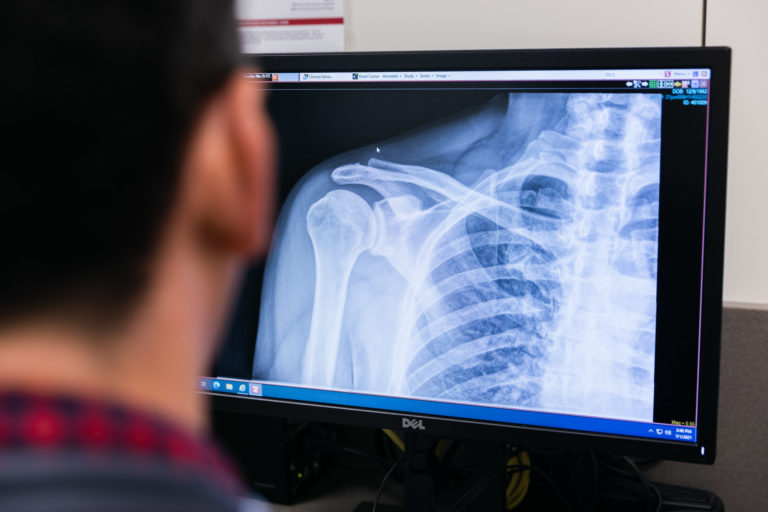
Spinal stability:
Spinal stability may lead someone to undergo a spinal fusion in Kansas City, though the term is quite broad.
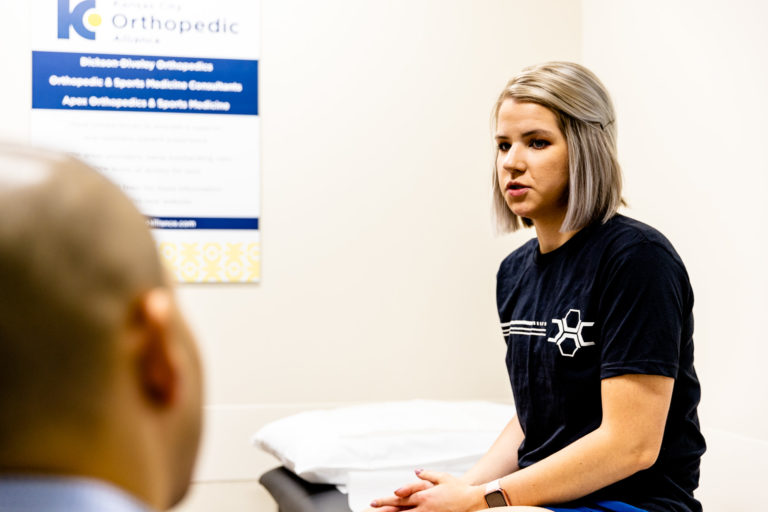
Scoliosis:
Many spinal fusion patients suffer from scoliosis, a deformity that creates a sideways curvature of the spine. In many cases, the cause behind the condition is unknown, and symptoms usually develop during growth spurts or just before puberty.
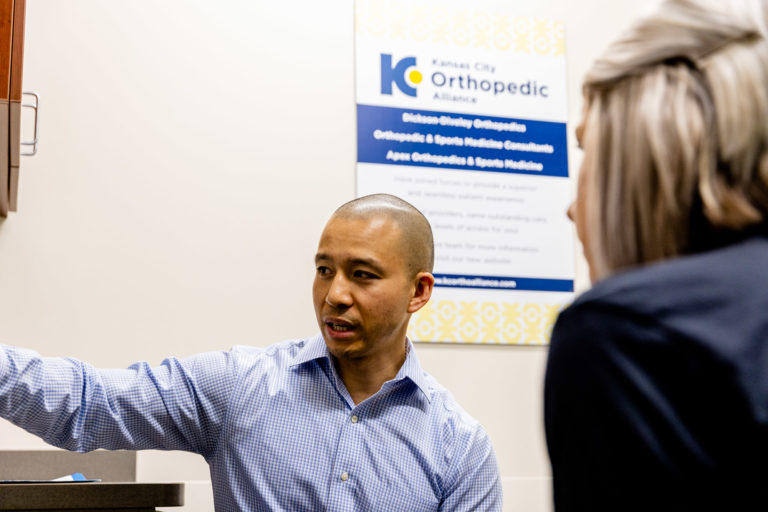
Servere scoliosis:
Scoliosis can be mild and managed without surgery. However, in severe cases, the deformity can worsen and cause back pain and other symptoms, resulting in the need for spinal fusion surgery.
Treatments Alternatives
Non-Surgical Options
If signs of scoliosis or spinal instability are present, you should always see your Kansas City Orthopedic Alliance doctor to discuss your options. Before considering spinal fusion, we will, in most instances, recommend exhausting conservative options. These include physical therapy, braces, pain-relieving drugs, and interventional physiatry techniques, such as epidural steroid injections.
Physical Therapy
Physical therapy is involved in the initial hospital phases to ensure you are safe to go home. However, most your physical therapy work won’t begin until about three months after surgery. The three month, low-impact period allows the bonding to heal, ensuring the cells in the fusion area remain on the path toward forming new bone.
Medication
There may be a need for continued medication management during your recovery from spinal fusion surgery. Your physician will work with you to help control inflammation, muscle spasm, and pain.
Spinal fusion
Although a spinal fusion can ease your current neck, back, or leg pain, it may not always prevent future spine conditions. Taking care of your bones and joints is something you should implement in your daily life.
Lifestyle change
We recommend regular exercise, eating a balanced diet, maintaining a healthy weight, and monitoring your blood sugar levels if you’re diabetic. In doing so, you may reduce the amount of stress on your joints and slow down any potential degenerative process.
F.A.Q.
Frequently Asked Questions
About Kansas City Orthopedic Alliance
Meet Kansas City Orthopedic Alliance
Our board-certified, fellowship-trained physicians and surgeons are highly experienced in their respective fields and are considered among the top orthopedic providers in the Midwest.
Along with our Physician Assistants, Nurse Practitioners, and support staff, Kansas City Orthopedic Alliance physicians deliver the utmost level of dedicated care across a range of subspecialties.
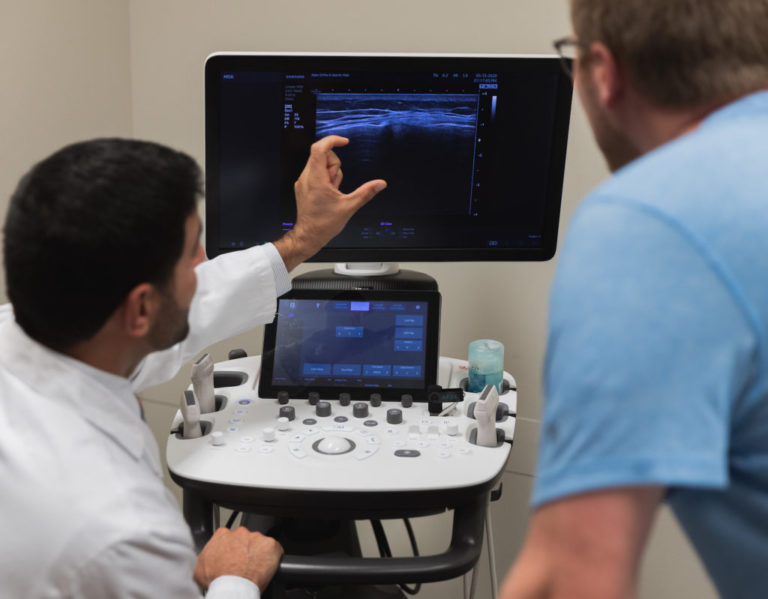
Don’t compromise quality care.
Our care is personal. Our team is knowledgeable. And we’re more available than ever.
With access to board-certified specialists across Kansas City, we have the tools to meet almost every musculoskeletal condition.
Our Locations
Overland Park, Kansas
10777 Nall Ave Suite 300 Overland Park, KS 66211Leawood, Kansas
3651 College Blvd. Leawood, KS 66211Kansas City, Missouri
Saint Luke's Medical Plaza #1 4320 Wornall Rd., Ste. 610 Kansas City, MO 64111Belton, Missouri
Belton Regional Campus 17067 S Outer Rd #301 Belton, MO 64012Blue Springs, Missouri
St. Mary’s Medical Center, Main Entrance 203 NW R.D. Mize Road, Suite 200 Blue Springs, MO 64014Shawnee Mission, Kansas
7450 Kessler St ste. 140 Merriam, KS 66204Prairie Star (Lenexa, Kansas)
Prairie Star 23401 Prairie Star PkwyBldg. B, Ste. 220 Lenexa, KS 66227

